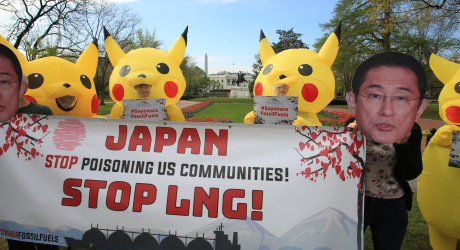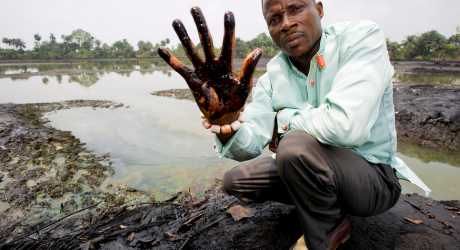GLOBAL POLICY
The Paris climate goals demand a rapid, just transition from fossil fuels to clean energy. We’re pushing governments to lead the way by adopting policies to end oil and gas production.
OVERVIEW OF WORK
In order to achieve climate goals, governments and other decision makers must support a just and equitable move away from fossil fuels. We are pushing for precedent-setting leadership from governments to put policies in place to manage the decline of oil and gas and ensure a just transition for fossil-fuel dependent workers and communities.
Building from a growing group of first mover governments, we are pressuring for increasing numbers of national and regional governments to end new licenses and permits for oil and gas production, and to develop plans to wind down their existing production over time.
LATEST PROGRAM POSTS
Japan is continuing to drive the expansion of fossil fuels across Asia and is derailing the transition to renewable energy. This harms communities and ecosystems, undermines energy security, and worsens the climate crisis. The facts speak for themselves.
A letter delivered to U.S. President Biden from 560+ organizations around the world applauded Biden's decision to halt pending LNG export approvals and called on him to expand the pause to halt all permitting of new LNG infrastructure and export projects.
Last month, it was widely reported that another chapter in Shell’s dirty and disastrous eighty-seven-year operations in the Niger Delta was coming to an end, with the company selling its onshore business.
While Manchin and his industry allies spread tired old myths about America saving the world from Putin and Chinese coal plants, the reality is the energy transition is already moving away from gas faster than most people think. That action needs to focus on a phase-out of all fossil fuel exports and protections and reparations for the frontline communities.
LATEST PROGRAM RESEARCH
Existing analyses of the impacts of tar sands fail to account for a byproduct of the process that is a major source of climate change causing carbon emissions: petroleum coke - known as petcoke. Petcoke is the coal hiding in North America's tar sands oil boom.
What if you knew that smoking that one last packet of cigarettes was going to give you cancer? Imagine if our understanding of cancer was so precise as to allow doctors to predict with virtual certainty that smoking that particular pack, which you just picked up at the corner store, would definitely be the last straw and cause you to contract life-threatening cancer? Obviously, you would not smoke that pack.
In the world today, global warming is our collective cancer, and despite dire and clear warnings, the oil industry is still smoking away. The best climate science in the world tells us
In our second review of progress in meeting this phase out commitment we conclude that the G20 effort is currently failing.




